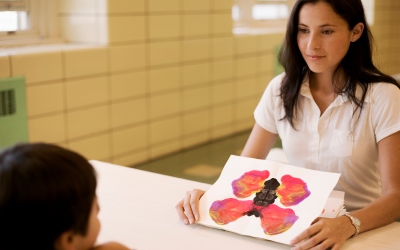Is Psychiatry Ignoring Therapy in Child Mental Health?
Mental health professionals have expressed some concern about the direction taken by the authors of the American Psychiatric Association’s Diagnostic and Statistic Manual for Mental Disorders. This is the APA’s classification system for mental disorders, which has been psychiatry’s leading publication on mental health for 60 years.
The concern surrounds the belief that psychiatry is now more concerned with a neuroscientific approach to mental health, gradually ignoring psychological theories and the so-called bio-psycho-social model of mental illness for a model that focuses solely on physiological functioning.
This model particularly worries those concerned with treating children and adolescents with mental health disorders or illnesses. The fear is that a mis-diagnosis of mental health problems can lead to medicalisation of children’s psychosocial health and to potential stigma.
For example, there has been a significant increase in the number children being diagnosed with attention deficit hyperactivity disorder (ADHD) with many of those youngsters being prescribed antipsychotic drugs such as Risperidone to treat the behavioural disorder.
For many health professionals, medicalising psychosocial health can have a detrimental effect on a youngster, particularly because being diagnosed with the likes of ADHD may cause that child to be given a mental health label that will affect their developing identity. This can lead to depression while many adolescents also report feeling they have no control over their lives once they are on the treadmill of prescribed drugs.
Medication is increasingly seen as a quick fix for mental health disorders in young people with little research showing the long-term effects and potential harm that these can cause. Therapy is often seen as too time-consuming and expensive, another concern for critics of the APA’s manual.
A child’s developing brain has to be seen and explored in many contexts, such as from the point of view of neuroscience, developmental theory, psychiatry and psychotherapy, and it is only when all elements are taken into consideration that a child’s life can be understood more fully.
Integrative therapies that incorporate family have been shown to have the greatest effect on improving the health of children with the most severe mental illnesses. Such an approach has to be considered before simply prescribing drugs to deal with a problem.


Comments are closed.